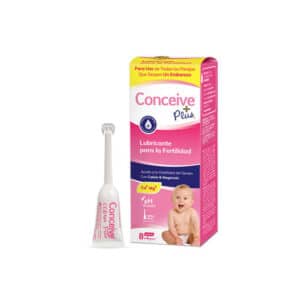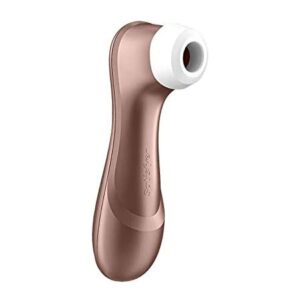Can orgasm help you get pregnant?
This is a very common question but almost nobody ends up asking gynecologists. Probably because of all the taboo surrounding female sexuality, and orgasm in general.
It seems that it is acceptable to ask about specific fertility issues, but not so much about the more “recreational” part of sexuality.
Let's see if we can clarify some concepts.
Obviously it is possible to get pregnant without the woman having an orgasm.
But the big question is whether the female orgasm could promote fertility and the possibility of pregnancy.
Some studies suggest that there is a correlation between female orgasm and fertility success, but these are quite old studies that have been somewhat nuanced later.
On a scientific level, then, It is not entirely clear whether or not female orgasm can help fertility.
Still, the notion that female orgasms facilitate conception lives on as one of the most pervasive fertility myths, both among men and among women.
And, in many cases, among the fertility professionals themselves. There may be some reason behind this.
The female orgasm and its physiological usefulness
The purpose of the female orgasm in humans has been studied for a long time. Some theorize that it's just fun, while others say that it definitely helps with conception.
If female orgasms can help conceive, what could be the mechanism?
Let's look at some of the theories about female orgasms. There are three main hypotheses about how the female orgasm can help you get pregnant.
pulley hypothesis
Proposed by zoologist Desmond Morris in 1967, this hypothesis says that the purpose of female orgasms is to tire women out. In this way, the women remained lying down for longer after the sexual act, which would make it easier for the sperm to reach their destination.
However, several subsequent studies have been inconclusive on the direct relationship between lying down and fertility. It is true that there is, at least one, that identified that women who remained in a horizontal position after insemination were more likely to conceive.
suction theory
This hypothesis is undoubtedly the most widespread. It is based on the fact that the contractions of the uterus during the female orgasm could help to "suck" the semen that is deposited in the vagina, near the cervix. That would help move the sperm through the uterus and fallopian tubes.
Several studies concluded that when female orgasm occurred a minute or less before male ejaculation, sperm retention was greater. Therefore, in these cases, the chances of pregnancy increased.
On the other hand, an experiment was done with latex spheres the size of a sperm head placed in the vagina. It was found that in women who had orgasms, uterine contractions were able to move the latex spheres more easily up the tubes.
This is the place where the sperm must arrive to find the egg and for fertilization to occur.
Other works served to corroborate that enjoying multiple orgasms increased the probability that the sperm would reach the egg, improving fertility options.
But… What if the woman's orgasm happened after the male ejaculation?
The researchers found that if the woman had an orgasm up to 45 minutes after the orgasm, sperm retention is greater. However, this study did not look at final pregnancy rates.
If pregnancy rates were higher with female orgasm, it would be unclear by how much.
evolutionary theory
Lastly, there is another theory as to why the female orgasm exists. This theory posits that female orgasms were once important for conception. However, he clarifies that, like other things in the human body, today it has ceased to have such a vital role.
The idea arises from the fact that some mammals, such as cats, do not ovulate if they do not copulate. And it is believed that, in some way, the female orgasm could have been the stimulator of female ovulation in the first place.
Clitoral stimulation induces feelings of pleasure along with the release of hormones and muscle contractions. These hormones and contractions could have caused the ovaries to release an egg in ancient humans.
As humans have evolved and ovulation has begun to occur regularly and without sexual stimulation, the clitoris has moved further away from the vaginal canal. This does not mean that the female orgasm has no purpose in conception, but it does imply that its importance has diminished considerably.
Today, ovulation occurs on a monthly basis, regardless of whether a woman has intercourse or not.
Orgasm frequency and fertility potential
Still today there is no study directly linking female orgasm with conception. However, a study on the connection between a woman's orgasm rate and the number of children she has is interesting.
The study was conducted with 8.000 female twins.
The participants were asked how often they had sex, the frequency of their orgasms, whether they had difficulty reaching it and, finally, how many biological descendants they had.
The researchers found that there was a weak but significant correlation between the rate of orgasms and the number of offspring. However, once environmental factors were taken into account, that connection disappeared.
There also didn't seem to be a genetic connection between orgasm rate and fertility rates. According to this study, the ability (or inability) to reach orgasm did not sufficiently affect fertility.
Foreplay and male fertility
Longer foreplay and a higher level of sexual arousal before ejaculation have been shown in some studies to increase sperm count.
It seems that taking the time to bring a woman to orgasm can improve semen parameters. Both humans and some animals engage in oral sex, which you might assume has little to do with reproduction.
However, the studies concluded that performing cunnilingus increased the volume of semen produced by the man during subsequent intercourse.
Orgasms: Indirect Fertility Aid
What is certain is that orgasms can help fertility indirectly. Pleasure has a direct effect on the production of stress hormones and on the release of the hormone oxytocin.
Both things, from the most theoretical point of view, imply advantages when it comes to conceiving.
Yes, there are numerous trials that demonstrate the harmful effect of stress on fertility (link to previous post).
An orgasm naturally releases huge amounts of chemicals that make a woman feel good. Her body will be less nervous and less stressed. And the oxytocin released during the sexual act does not depend on the orgasm itself, but on the fact of enjoying sex.
It's important to mention that dealing with fertility issues and trying to get pregnant are stressful enough in and of themselves. And the continued search for orgasm in each sexual relationship can be an even more stressful component for the couple.
For this reason, and given the lack of scientific consensus, from here we opt to recommend the intimate encounter between the couple, the enjoyment of the senses and the secretion of pleasure hormones as the main engine for fertility.
And if the orgasm comes, let it be welcome. But if it doesn't come, don't let it be a source of frustration.
Stimulus, pleasure, stress, oxytocin... Everything is part of a complex orchestra in which each instrument has its place and function: everything sounds great if it happens in unison but each instrument, by itself, is not only necessary but also shines with its own light.
From the most spiritual part, similar to what happens with hormones, the intimate and pleasurable sexual act of a couple generates a whole series of energies.
In cases where couples are forced to resort to assisted reproduction processes, it is recommended to have sexual intercourse prior to transfers. An attempt is made to reproduce, as far as possible, everything intangible that would naturally occur before natural fertilization.
Without a doubt, one more support for the mysterious and complex mechanisms of fertility.
It may interest you:
- Discover the best Satisfyer for an orgasm 🔝
- 3 + 1 technologies to detect ovulation
- The unknown world of male masturbators
Related products



